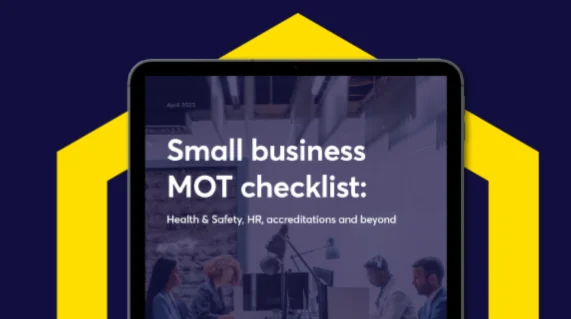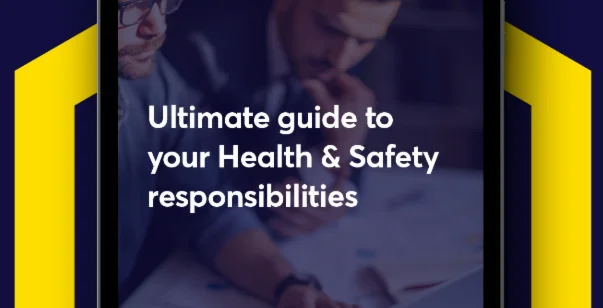- IndustriesIndustries
- Risk AssessmentsRisk Assessments
- Most Popular
- Electrical Fitting Risk Assessment
- Working at height risk assessment template
- Ground Works Risk Assessment
- Plumbing Risk Assessment
- Blank Risk Assessment Template
- Woodwork / Carpentry Risk Assessment
- Tree Surgery Risk Assessment
- Cleaning Risk Assessment
- Interior Decoration Risk Assessment
- General Property Maintenance Risk Assessment
- General Roofing Works Risk Assessment
- Free Risk Assessment Templates
- View All
- Most Popular
- Method StatementsMethod Statements
- Most Popular
- Electrical Method Statement
- Ground Works Method Statement
- Plumbing Method Statement
- Woodwork and Carpentry Method Statement
- Ladders and Scaffold Access to Height Method Statement
- Brickwork method statement
- Interior Decorating Method Statement
- General Roofing Method Statement
- Partitioning and Drylining Method Statement
- Groundworks / Drainage Method Statement
- Tree Surgery Method Statement
- General Property Maintenance Method Statement
- View All
- Most Popular
- COSHH AssessmentsCOSHH Assessments
- Most Popular
- Blank COSHH Assessment
- Portland Cement COSHH Assessment
- Brick Dust COSHH Assessment (Silica)
- Unleaded Petrol COSHH Assessment
- Diesel COSHH assessment
- WD40 COSHH Assessment
- Silicone Sealant Low Modulus COSHH Assessment
- White Spirit COSHH Assessment
- Roundup Glyphosate COSHH Assessment
- PVA Glue COSHH Assessment
- MDF COSHH Risk Assessment
- View All
- Most Popular
- Free ResourcesFree Resources
- AccreditationsAccreditations
- SoftwareSoftware
- Contact Us
Free Resources
To support your business we've created a range of free downloadable documents. From Health & Safety resources to HR & Employment Law documents, they're the perfect starting point to meeting your legal obligations as a business owner.
Flexible working changes: Your responsibilities as an employer
Flexible working arrangements can come in many forms. It can include working from home all or part of the time,...
Read moreStreamline your business: how to operate efficiently | free webinar
Join our exclusive webinar on 24 April (4- 4:45 PM) where we’ll introduce you to our one-stop solutions to HR,...
Read moreApril 2024: employment law changes (must-knows for employers)
2024 is already shaping up to be a year of unprecedented Employment Law change – and there are a couple...
Read moreHow contracts can protect your business: a best-practice guide
It can be overwhelming figuring out how to do your work and run a business, and it can often feel...
Read moreMust-know HR & Employment Law updates for 2024
Last year saw Parliament pass seven Private Members Bills designed to introduce various new employment rights and obligations. This year...
Read moreGo green and get seen: how to win more work and become more sustainable
Businesses that focus on taking care of the environment, supporting their communities and having strong management practices not only become...
Read moreRIDDOR must-knows for business owners
Hazards are present in any workplace and accidents are sometimes unavoidable. In fact, in 2022/23, over 60,000 accidents were reported...
Read moreFree Webinar – How to boost your tenders.
Do you have a goal to work with local councils and win big commercial contracts? Or are you wondering how...
Read moreSite Safety: top tips for businesses
Site safety is one of the most important parts of running a successful business. It’s no secret that construction is...
Read moreSSIP accreditations: your ultimate guide to winning commercial work
At HS Direct, we’re here to help our clients transition from domestic work to commercial contracts, and one of the...
Read moreWorkplace transport: vehicle and pedestrian safety
As a business owner, making sure everyone on your site is safe – employees and visitors alike – is top...
Read moreOn-demand Health & Safety MOT webinar: latest must-knows
Are you wondering what’s going on in the world of Health & Safety? Worrying about Health and Safety Executive (HSE)...
Read moreTendering: how to secure work with local councils
Winning commercial contracts is a key goal for many businesses. But the process is slightly different when it comes to...
Read moreWhat to expect when your employees are expecting: a guide to maternity
How much do you know about your responsibilities when it comes to your employees who are expecting? There’s a lot...
Read moreKeeping it cool: your guide to safe summer working
We all love summer – barbecues, beach weekends and sunbathing. But as the temperatures rise, risks at work do too,...
Read moreFire Safety 101: roles, responsibilities and everything you need to do
Fire safety is something you need to have a handle on at your business. In 2021/22 alone, in total, there...
Read moreAsbestos checklist: must-knows for business owners
Protect your people and your business with this free checklist covering everything asbestos – including what the law says, what...
Read moreHealth & Safety handbook: free template and step-by-step guide
Everyone in your business needs to be fully in the know when it comes to Health & Safety policies and...
Read moreMetalworking Inspection Guide: handling cutting fluids
The Health & Safety Executive (HSE) is currently inspecting companies that handle cutting fluids, which can cause serious health problems...
Read moreNew starters: an onboarding checklist for business owners
As a growing business, you might be in the recruitment process at the moment, or potentially taken on new staff...
Read moreHeat stress at work: must-knows for business owners
Every workplace is different and so there’s no law for maximum working temperature. However, the Workplace (Health, Safety and Welfare)...
Read moreHealth & Safety Essentials – everything business owners need to know
Having robust Health & Safety practices isn’t just a legal obligation – it’s vital to protecting you, your employees and...
Read moreManaging dust in construction & trades and related industries
More than 3,500 builders die each year from cancers related to their work and becoming exposed to harmful substances, with...
Read moreLong-term health conditions and disabilities: HR and Health & Safety checklist
The latest figures from the Office for National Statistics (ONS) suggest some 2.5 million people are missing from the labour...
Read moreHybrid working: must-knows for getting it right
Hybrid workers are those who spend part of their time at their workplace and part of their time workingfrom another...
Read moreOn-demand Webinar: Managing Stress & Mental Health – top tips for business owners.
Watch as Guy Woodcock LLB, our Director of Employment Law & Service Delivery and Josh Wright GradIOSH, Health & Safety...
Read moreBusiness MOT checklist: Health & Safety, HR, accreditations and more
Worried about whether your business is where it needs to be when it comes to compliance and your legal responsibilities?...
Read moreThe ultimate business guide to Health & Safety responsibilities
At HS Direct, we’ve spent years helping thousands of small businesses take control of their Health & Safety compliance and understand what’s...
Read moreOn-Demand Webinar: Getting Health & Safety Inspection Ready.
As a busy business owner with lots to keep on top of, it’s easy to overlook your core Health and...
Read moreFree Method Statement Checklist
Our checklist is designed to make your life easier by guiding you through the process of creating effective and comprehensive...
Read moreHealth & Safety Business Boosters: how to use accreditations to level up your business
Want to power your business forward? As part of something bigger, you’ve got a whole team of backers by your...
Read moreRisk Assessment (Individual) for Pregnant and Expectant Mothers
Did you know you’ve got a legal requirement to make sure that work doesn’t harm your pregnant staff? If you’ve...
Read moreFree On-Demand Webinar: Expert Tendering Webinar & Panel Discussion
Tendering is all about standing out from the crowd. So, as well as acing your applications, you need to make...
Read moreHow to keep young workers safe and healthy
Whether through apprenticeships, work experience or other circumstances, you might’ve found yourself in the position of hiring people under 18...
Read moreFree tendering toolkit: must-have resources for business owners
Get set for growth and read our top tips on how to grow from completing largely domestic work to winning...
Read moreSilica Dust: Toolbox Talk
We already know the Health & Safety Executive (HSE) is upping their inspections – but something they’re cracking down on...
Read moreOn-Demand Webinar & Slides: Safe Site Shutdown
The festive period has arrived, and it may well be time for you to think about closing your site over...
Read moreBusiness Continuity Planning Checklist (Planning For Emergencies)
Workplaces legally need to have a plan in place for emergencies that can have a wider impact – like serious...
Read moreStress Risk Assessments: Must-knows For Business Owners
About 11 million working days are lost per year due to stress, depression, and anxiety, causing significant financial losses to...
Read moreSubcontractor management: free checklist for business owners
Subcontractors are a flexible source of expertise and labour, available as and when your business requires them. However, that flexibility...
Read moreHR & Employment Law Essentials Toolkit: business owner must-haves
Are you sure you’ve got all things HR & Employment Law sorted in your business? Our experts have pulled together...
Read moreAlcohol and Drugs Policy Template
Depending on the nature of your business, it may be necessary to have a detailed alcohol and drugs policy, which...
Read moreEmployment Status Must-knows for Hair & Beauty Businesses
Due to the nature of the industry, the beauty sector sees individuals regularly being engaged under all of the three...
Read moreWorld Cup Checklist: Health & Safety and HR considerations for business owners
Is it coming home? Who knows. But what we do know is: The football World Cup this winter runs from...
Read moreHealth & Safety Inspection Toolkit: Must-haves For Business Owners
As a business owner, you could face an unannounced spot check from the Health and Safety Executive (HSE). If the...
Read moreFree Hair and Beauty Health & Safety Policy Template
Your Health & Safety policy will not only show your commitment to Health & Safety by reassuring your employees, but...
Read moreFree Winter Toolkit: Must-have Compliance Resources
Winter is an especially challenging time for employers from a Health & Safety perspective with cold conditions, slippery surfaces, dark...
Read moreEmployment Status: Health & Safety Considerations For Employers
Do you have the same Health & Safety obligations towards workers and employees? What about self-employed persons that you work...
Read moreA Guide To Handling Holiday Leave
From entitlements to accruing leave to employee requests, the holiday season can be a lot to handle if you’re not...
Read moreFree Mental Health Toolbox Talk
Mental health concerns how we think, feel and behave. Anxiety and depression are the most common mental health problems. They...
Read moreToolbox Talk – Cosmetic Procedures: Non-Surgical Legislation
The UK government has announced its intention to introduce special licensing requirements for non-surgical cosmetic procedures, otherwise known as aesthetic...
Read moreCosmetics and Aesthetics Health & Safety Cheat Sheet
Although there are lots of different options within the industry (be those cosmetic procedures, holistic treatments, hair care or nail...
Read moreHolistic Therapies Health & Safety Cheat Sheet
Download your holistic therapies Health & Safety Cheat Sheet!
Read moreHair, Nails and Beauty Health & Safety Cheat Sheet
Download our Hair, Nails and Beauty Health & Safety Cheat Sheet.
Read moreCOSHH Risk Assessments in 5 Simple Steps
As an employer, you must comply with the COSHH (Control of Substances Hazardous to Health) Regulations 2002 to control exposure...
Read moreFree COSHH Assessment Template
Free COSHH Assessment advice from HS Direct, learn how to write your own COSHH Assessments.
Read moreKey Employment Law and HR Updates for 2022
It’s already proved to be a busy start to 2022 for HR & Employment Law updates with the annual changes...
Read moreHR & Employment Law basics
Struggling to get your head around HR & Employment Law and how it relates to your business and your employees?...
Read moreWorking at Height Risk Assessment
Make sure you’ve got the proper measures in place to keep your people safe.
Read moreTendering 101
No matter the size of your business and your goals, you’ve probably come across tendering in some way or another...
Read moreTop Tips for Tendering
Tendering is a key way of bringing in more business, and so making sure your application stands out from the...
Read moreHow to report an accident: a checklist
Hazards are present in any workplace and accidents are sometimes unavoidable. But, as an employer, you do have certain legal...
Read moreManual Handling Risk Assessment
Our Manual Handling Risk Assessment template has been written by IOSH and NEBOSH qualified professionals. This Risk Assessment template helps...
Read moreAn Introduction to Health & Safety Accreditations
Achieving a Health & Safety accreditation can be a great way to win more business, stand out from the competition...
Read moreWinter Working Toolbox Talk
The winter season can bring a whole host of positive occasions and events to look forward to, however when it...
Read moreWinter Working: Cheat Sheet
Winter is an especially challenging time for employers from a Health & Safety perspective, for a number of reasons. These...
Read moreLonger-Term Homeworking: An Action Plan for Employers
On 8 December 2021, Boris Johnson announced that the government will be introducing winter Plan B measures to help combat...
Read moreCOVID-19 Winter Toolkit
During the winter months, with COVID cases increasing and the Omicron variant now a concern, it’s important you take the...
Read moreTips for business growth: free guide
In the wake of the chaos caused by the pandemic, as well as supply chain issues and recruitment challenges, there...
Read moreFive common Health and Safety mistakes
Our team of Health & Safety experts support business owners to create safer and more effective businesses and when it...
Read moreThe end of furlough: your options explored
Please Note: All information was correct at time of writing on 02 September 2021. We do our very best to...
Read moreTravel and Quarantine (June 2021 update)
Following the suspension of all travel corridors with the UK back in January this year, Transport Secretary Grant Shapps addressed...
Read moreThe Kickstart Scheme – everything you need to know
The government’s £2 billion Kickstart Scheme has been in place since September 2020. The government’s aim is for the scheme...
Read moreReturning to work challenges
Employees who can’t (or won’t) return to work: a troubleshooting guide: The COVID-19 pandemic has meant drastic changes for the...
Read moreManaging ventilation in the workplace and vehicles
One of the key control measures in relation to a COVID-secure workplace and vehicle is ventilation. The fresher the air...
Read moreCOVID-19: Face coverings in indoor settings
It became mandatory to wear facemasks in a variety of settings – including shops, supermarkets and public transport – across...
Read moreCOVID-19 testing: Key HR considerations for employers
One of the most important facts about coronavirus that has emerged is that about one-third of infections are asymptomatic –...
Read moreTravel and Quarantine Update
Travel-related quarantine periods and their implications for employers. Following the suspension of all travel corridors with the UK back in...
Read moreFlexible working: your responsibilities as a business owner
Quite simply, flexible working is a pattern of work that differs from the one under which an employee is currently...
Read moreA guide to COSHH in cleaning
Cleaning is an essential aspect of controlling the spread of infections around all workplaces. Infection prevention aims at keeping your...
Read moreManaging employees with COVID symptoms
As your people start to return to work, making sure you know exactly what to do if an employee presents...
Read moreManaging sickness and absence: top tips for business owners
Managing sickness and absences can be challenging at the best of times, but the latest figures suggest sickness absence is...
Read moreConstruction Health & Safety checklist
The Health and Safety Executive (HSE) is spotlighting certain businesses for failing to assess, plan, and implement the correct Health...
Read moreThe Good Work Plan: employment rights at-a-glance
Understanding how to make the distinction between employee, worker, and the self-employed is essential for business owners. The changes that...
Read moreRisk Assessment Checklist
As we all know, risk assessments are a legal necessity and if you employ five or more people, they must...
Read moreHow to hold a disciplinary
Despite your best efforts, you may find yourself having to deal with the added stress and complexities of the disciplinary...
Read moreEmployment contracts: free template
The aim of this guide is to explain what the legal requirements are for employment contracts. Free advice is available
Read moreTermination of Employment – Short Service
Learn everything your need to know about the legality of short term dismissal. Free info and advice is available.
Read moreWater Industry Regulation Scheme – WIRS
Learn everything your need to know about the Water Industry Registration Scheme accreditation. Free info and advice is available. WIRS
Read moreWhat is a Zero Hours Contract?
Download a Zero-hour employment contract example from EL Direct. Free information and advice is available
Read moreGuide to Disciplinary Procedures
A guide to disciplinary procedures against an employee in the workplace.
Read moreRedundancy Starter Checklist for Employers
The cost of living crisis has left many UK employers forced to consider making redundancies to ensure their businesses are...
Read moreSubcontractors
Learn everything your need to know about subcontractors before your take them on. Free info and advice is available
Read moreWhat is the National Living Wage
Find out everything your need to know about the National Living Wage. Free help and advice is available
Read moreMy employee refuses to work their notice period
Employees often refuse to work their full notice period. We explain what to do to avoid this and provide example...
Read moreManaging a TUPE transfer
Learn how to manage TUPE transfers and ensure compliance. Free info and advice is available
Read moreEmployment Contracts Review and Drafting Service
First for Employment is a unique online system to managing your employees.
Read moreGas Industry Registration Scheme – GIRS
Learn everything your need to know about the Gas Industry Registration Scheme accreditation. Free info and advice is available. GIRS
Read moreNational Electricity Registration Scheme – NERS
Learn everything your need to know about the National Electricity Registration Scheme. Free info and advice is available
Read moreYour Free Staff Holiday Calculator from EL Direct Ltd
Download your free Staff Holiday Calculator from EL Direct Ltd. A Sheffield based Employment Law & HR company.
Read moreWorking in Cold Conditions Risk Assessment
Keep everyone on your premises safe, whatever the weather.
Read moreWhat is SafeContractor Accreditation
Find out the importance of a SafeContractor accreditation and h how it can benefit your business.
Read moreFree Electrical Safety in the Workplace template
Find out major electrical hazards, who considered a competent person, and how to manage the risks.
Read moreRespiratory Protective Equipment
Check you’ve got everything in place to properly manage RPE in your workplace.
Read moreWorking in the Sun
Are you aware of the hazards and risks that come with working in the sun?
Read moreISO Certification
Find out the benefits of becoming ISO certified and what it means for your business.
Read moreVet Surgery
From Veterinary specific risk assessments to employee training management, our system has you covered.
Read moreFree Health & Safety Policy template
Free Health & Safety Policy information plus a guide to writing your own Health & Safety Policy.
Read moreAsbestos Risk Assessment
Check your legal obligations as an employer for preventing the risk of asbestos.
Read moreCarcinogens Risk Assessment
Carcinogens Risk Assessment. Check what your responsibilities are when it comes to preventing this harmful substance.
Read moreConfined Space Risk Assessment
Do you work in confined spaces? If so, make sure you know how to keep everyone safe whilst doing so.
Read moreDriving at Work Policy
Do you use your car for business purposes? Check out our free recommendations for managing company vehicles.
Read moreFire Safety in the Workplace Policy
Make sure that you know the control methods that you should have in place for fire safety at work.
Read moreLegionella: five things you need to know
Find out the dangers of Legionella and how to prevent it.
Read moreLone Working Risk Assessment
Do you need a Lone Working Risk Assessment? Check out our free resources.
Read moreEmploying Migrant Workers
Make sure you’re aware of your responsibilities when it comes to employing workers from overseas.
Read moreGeneral Office Risk Assessment
Do you need to carry out an office safety Risk Assessment? We can help.
Read moreProducer Responsibility
Check out your obligations, key legislation, and penalties for getting it wrong.
Read moreShift Working Guidelines for Employers
Do you employ shift workers? If so, read about how to properly manage it.
Read more
Request a Quote
For a simple, no-obligation quote and chat with one of our friendly team, just enter your details and we’ll be in touch!
By submitting this form, you agree to our terms and conditions available here




